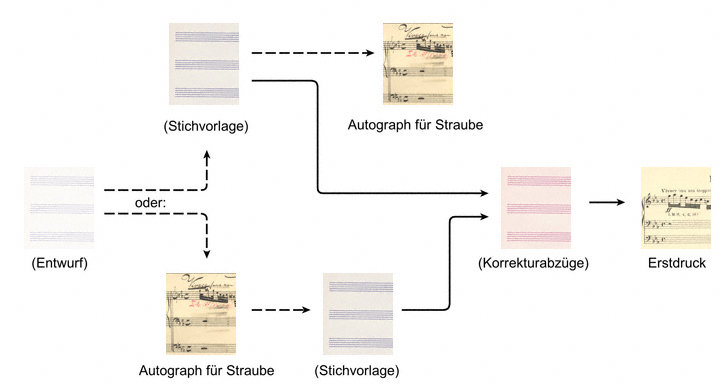Fantasia and Fugue in C minor op. 29
for organ
- I. Phantasie
- II. Fuge
Herrn Richard Strauss verehrungsvollst zugeeignet
- -
- -
- -
1.
| Reger-Werkausgabe | Bd. I/2: Phantasien und Fugen, Variationen, Sonaten, Suiten I, S. 38–52. |
| Herausgeber | Alexander Becker, Christopher Grafschmidt, Stefan König, Stefanie Steiner. |
| Verlag | Carus-Verlag, Stuttgart; Verlagsnummer: CV 52.802. |
| Erscheinungsdatum | Februar 2011. |
| Notensatz | Carus-Verlag, Stuttgart. |
| Copyright | 2011 by Carus-Verlag, Stuttgart and Max-Reger-Institut, Karlsruhe – CV 52.802. Vervielfältigungen jeglicher Art sind gesetzlich verboten. / Any unauthorized reproduction is prohibited by law. Alle Rechte vorbehalten. / All rights reserved. |
| ISMN | M-007-09485-0. |
| ISBN | 978-3-89948-141-9. |
1. Composition
1.1.
The Fantasia and Fugue in C minor op. 29 was written subsequently to the Chorale Fantasia “Freu dich sehr, o meine Seele!” op. 30 and probably parallel to the Cello Sonata in G minor op. 28. The date of completion of the fair copy intended for Karl Straube (see Manuscripts for Karl Straube) is 25 October 1898. Whether this manuscript was the Erstschrift (first copy) or another copy is not evident from an analysis of the sources, as the engraver’s copy is missing.1 The dedication to Richard Strauss is explained by his help in the search for a publisher: “By the way, Strauß introduced me to Aibl and Forberg. […] As a sign of my gratitude I have dedicated my op 29 – a large Fantasia and Fugue for organ – to him.” (Letter to Ernst Guder)
2. Publication
2.1.
While the Munich publisher Jos. Aibl hesitated to follow Richard Strauss’s recommendation, the publisher Rob. Forberg in Leipzig decided in the end to accept four works: “The sale is complete and I’ve also received some money in return.” (Letter to Ernst Guder) Reger signed the copyright agreement2 for opp. 27 and 29 on 30 November 1898, returned the proofs to the publisher on 10 February 1899 (see Letter dated 12 February 1899 to Richard Strauss) and awaited publication on 1 March. (Letter to Caesar Hochstetter)
3.
Translation by Elizabeth Robinson.
1. Reception
At present, there are no records of performances in Reger's time.
1. Stemma

2. Quellenbewertung
Der Edition liegt als Leitquelle der Erstdruck zugrunde. Von Opus 29 fehlen sowohl die Stichvorlage als auch die Korrekturabzüge, was das Nachvollziehen der Textgenese erschwert; als zusätzliche Quelle konnte lediglich Regers Autograph für Karl Straube herangezogen werden. Ob dieses als Erst- oder Zweitschrift entstanden war, lässt sich ohne Vergleich nicht klären. Sollte es sich um die Zweitschrift handeln, ergäbe sich wie bei der Choralphantasie Opus 30 (vgl. RWA Band I/1) die Situation, dass Reger Änderungen gegenüber der Stichvorlage nicht in diese rückübertrug oder wenigstens via Korrekturabzug in den Erstdruck einfließen ließ. In dem Brief an Richard Jung wiederum reagiert Reger offensichtlich auf dessen aufführungspraktische Anregungen bzw. Fragen, ohne damit jedoch eine wirkliche Korrektur des bereits erschienenen Erstdrucks in Erwägung zu ziehen.
3. Sources
Object reference
Max Reger: Fantasia and Fugue in C minor op. 29, in: Reger-Werkausgabe, www.reger-werkausgabe.de/mri_work_00030.html, version 3.1.1, 31st January 2025.
Information
This is an object entry from the RWA encyclopaedia. Links and references to other objects within the encyclopaedia are currently not all active. These will be successively activated.